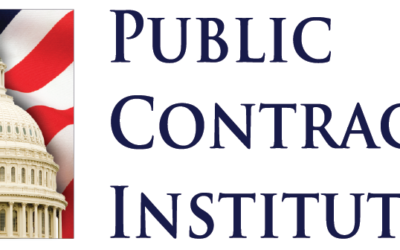Federal Acquisition Regulation (“FAR”) 15.306 deals with “Exchanges with offerors after receipt of proposals;” it is important to understand what is or is not required after receipt of proposals (but before selection for award), specifically pertaining to “clarifications” and the requirement for “discussions”. In a recent Government Accountability Office (“GAO”) protest, no clarifications were held (as protested), and GAO agreed that none were needed, based on the FAR requirements. Enterprise Technology Sols, B-422088, Dec. 20, 2023.
FAR 15.306(a) states that clarifications are limited exchanges, between the Government and offerors, that may occur when award without discussions is contemplated. Where clarifications are requested, offerors may be given the opportunity to clarify certain aspects of proposals (e.g., the relevance of an offeror’s past performance information and adverse past performance information to which the offeror has not previously had an opportunity to respond) or to resolve minor or clerical errors.
FAR 15.306(b) permits communications with offerors before establishment of the competitive range and are exchanges between the government and offerors that lead to the establishment of the competitive range. These communications may be conducted to enhance the government’s understanding of the proposal, allow reasonable interpretation of the proposal or facilitate the government’s evaluate process but shall NOT be used to cure proposal deficiencies or material omissions or otherwise revise the proposal.
Enterprise protested an award by the Department of Treasury, Internal Revenue Service (“IRS”) for servers and high speed mail inserters. Enterprise protested that the IRS eliminated it from the competition without first seeking clarifications. The request for proposals (“RFP”) stated that the offeror’s software must comply with government-wide and [IRS] specific security policies “at the time of Ready for Use.” In accordance with these policies, each offerors’ inserter software was required to be compliant with Internet Protocol Version 6 (“IPv6”).
Enterprise argued that because the RFP required offerors to be IPv6 compliant at an “undefined time” there was no requirement that the protester must be compliant at the time of proposal submission. Furthermore, since IPv6 compliance date was undefined, the IRS should have sought clarification of when the protester would be IPv6 compliant.
GAO rejected Enterprise’s interpretation. Even if Enterprise was correct that the RFP did not require IPv6 compliance by the date of its proposal (which proposal acknowledged that it didn’t have an IPv6 compliant solution), Enterprise’s proposal failed to demonstrate that it would be compliant with this RFP requirement any time before or during contract performance. The Enterprise proposal merely stated it was pursuing compliance, but could not state when compliance would be met.
GAO rejected the need for IRS to seek clarification, noting that the agency “was not required to seek clarification from Enterprise” about when it would demonstrate compliance. Agencies may seek clarifications but are not required to do so. The protester had a responsibility to submit a proposal with adequately detailed information that allows for a meaningful review by the procuring agency, but Enterprise failed to do that.
Takeaway. Do not assume that an agency will ask for clarifications—write your proposals completely and in a fully detailed manner, and fully address the RFP so your proposal can be evaluated.
For other helpful suggestions on government contracting, visit:
Richard D. Lieberman’s FAR Consulting & Training at https://www.richarddlieberman.com/, and Mistakes in Government Contracting at https://richarddlieberman.wixsite.com/mistakes.


